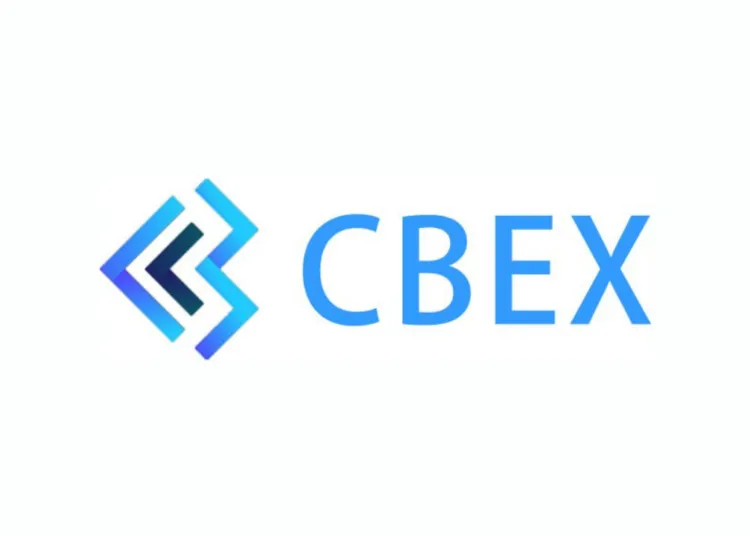In recent weeks, the financial community in Nigeria has been rocked by the disturbing revelations surrounding CBEX, a so-called investment platform that turned out to be nothing more than an elaborate Ponzi scheme. In a powerful piece published on Nairametrics, veteran journalist and commentator Reuben Abati sheds light on the scandal and its far-reaching implications—not only for the victims but for the entire Nigerian financial regulatory structure.
This post expands on that op-ed, breaking down the core issues Abati highlighted and examining what lessons must be learned to prevent future tragedies.
The Rise and Fall of CBEX: A Ponzi Scheme in Plain Sight
CBEX, formally operating as ST Technologies International Limited, presented itself as a legitimate investment platform promising outrageous returns—up to 100% profit in just 30 days. These promises were designed to seduce unsuspecting Nigerians desperate for quick financial gains in a tough economic climate.
What made CBEX particularly dangerous was its appearance of legitimacy. It was registered with the Corporate Affairs Commission (CAC) and listed with the Economic and Financial Crimes Commission’s (EFCC) Special Control Unit Against Money Laundering (SCUML). Offices were set up in Lagos and Ibadan. Staff were recruited. The operation looked and felt like a genuine business.
But it wasn’t. It was a classic Ponzi scheme.
Thousands of Nigerians were duped into investing their hard-earned money. And when the inevitable collapse occurred, investors were left with nothing. CBEX had vanished, and with it, millions—possibly over $1 billion—of investor funds.
Legal Actions and Arrests: A Glimmer of Justice?
In response to public outcry and the scale of the scam, the EFCC swung into action. On April 24, 2025, a court ordered the arrest and remand of six CBEX promoters, signaling a move toward accountability. The Securities and Exchange Commission (SEC) also pledged to take enforcement action against the promoters and others involved in facilitating the fraud.
However, Abati raises an important point: Will these actions be enough? Or are they merely reactive steps taken after the damage has already been done?
Ponzi schemes like CBEX aren’t new in Nigeria. From MMM to more recent iterations, these fraudulent platforms have plagued the country for years. Each time, people lose money, and regulators act only after the fact.
The NDIC: A Model of Proactive Financial Protection
While the CBEX case highlights regulatory failure, Abati contrasts it with the Nigeria Deposit Insurance Corporation’s (NDIC) recent intervention following the collapse of Heritage Bank.
After the Central Bank of Nigeria (CBN) revoked Heritage Bank’s license on June 3, 2024, NDIC wasted no time. By April 25, 2025, it began the disbursement of ₦46.6 billion in liquidation dividends to depositors with balances exceeding the insured limit of ₦5 million.
This was no small feat. The payout was made possible through the recovery of proceeds from the sale of the bank’s assets and unpaid loans. It sent a clear message: while bank collapses are unfortunate, there is a safety net for depositors—if their funds are with a regulated financial institution.
Abati commends this intervention, pointing out that NDIC’s efficiency reinforces public trust in formal banking. It stands in stark contrast to the lawlessness of unregulated platforms like CBEX.
The Bigger Problem: Gaps in Nigeria’s Regulatory Framework
At the heart of Abati’s analysis is a pressing question: Why are Ponzi schemes still thriving in Nigeria in 2025?
The problem, he argues, lies in systemic regulatory failures. While the NDIC has mechanisms in place to protect bank depositors, there is no equivalent safety net for victims of Ponzi schemes and unlicensed investment platforms. Agencies like the SEC and EFCC often act after the scam has run its course, by which point the money is gone and the damage done.
What’s more troubling is how these schemes continue to pass as legitimate enterprises. CBEX was registered and listed. It had offices. It even passed some basic regulatory checks. This raises serious questions:
-
Are regulatory agencies equipped to detect fraud before it spreads?
-
Is there a centralized, real-time database for monitoring suspicious financial activities?
-
Should Nigeria implement a whitelist of approved investment platforms, accessible to the public?
Abati argues that major reforms are urgently needed, especially within the SEC. Not just to react to fraud, but to prevent it. This means improving inter-agency collaboration, updating financial laws, and investing in technology and manpower for financial intelligence.
Public Awareness: The First Line of Defense
Another key theme in Abati’s article is the ignorance of the average Nigerian investor. Many still don’t understand the red flags of a Ponzi scheme. When promised quick returns, they fail to ask the right questions:
-
How is the return generated?
-
Is the company licensed by the SEC?
-
What is the business model?
A culture of financial desperation, driven by unemployment, inflation, and economic hardship, has made Nigerians easy prey for fraudsters.
That’s why Abati emphasizes the need for public financial education. Government agencies, the media, and schools must collaborate to spread awareness about safe investing, recognizing scams, and understanding personal finance.
Conclusion: From Tragedy to Transformation?
The CBEX scandal is a painful reminder of the vulnerability of the Nigerian public and the urgent need for financial system reform. But it also provides a chance for transformation—if stakeholders act decisively.
Reuben Abati’s piece isn’t just a critique—it’s a call to action. Nigeria must strengthen its regulatory institutions, modernize its oversight frameworks, and most importantly, protect its people. If the lessons of CBEX are ignored, history will repeat itself—with even more devastating consequences.
For now, the victims wait for justice. And the nation watches—hoping this time, real change will follow.
What’s Your Take?
Have you or someone you know ever fallen victim to an investment scam? What do you think can be done to prevent these schemes from thriving in Nigeria? Share your thoughts in the comments.


